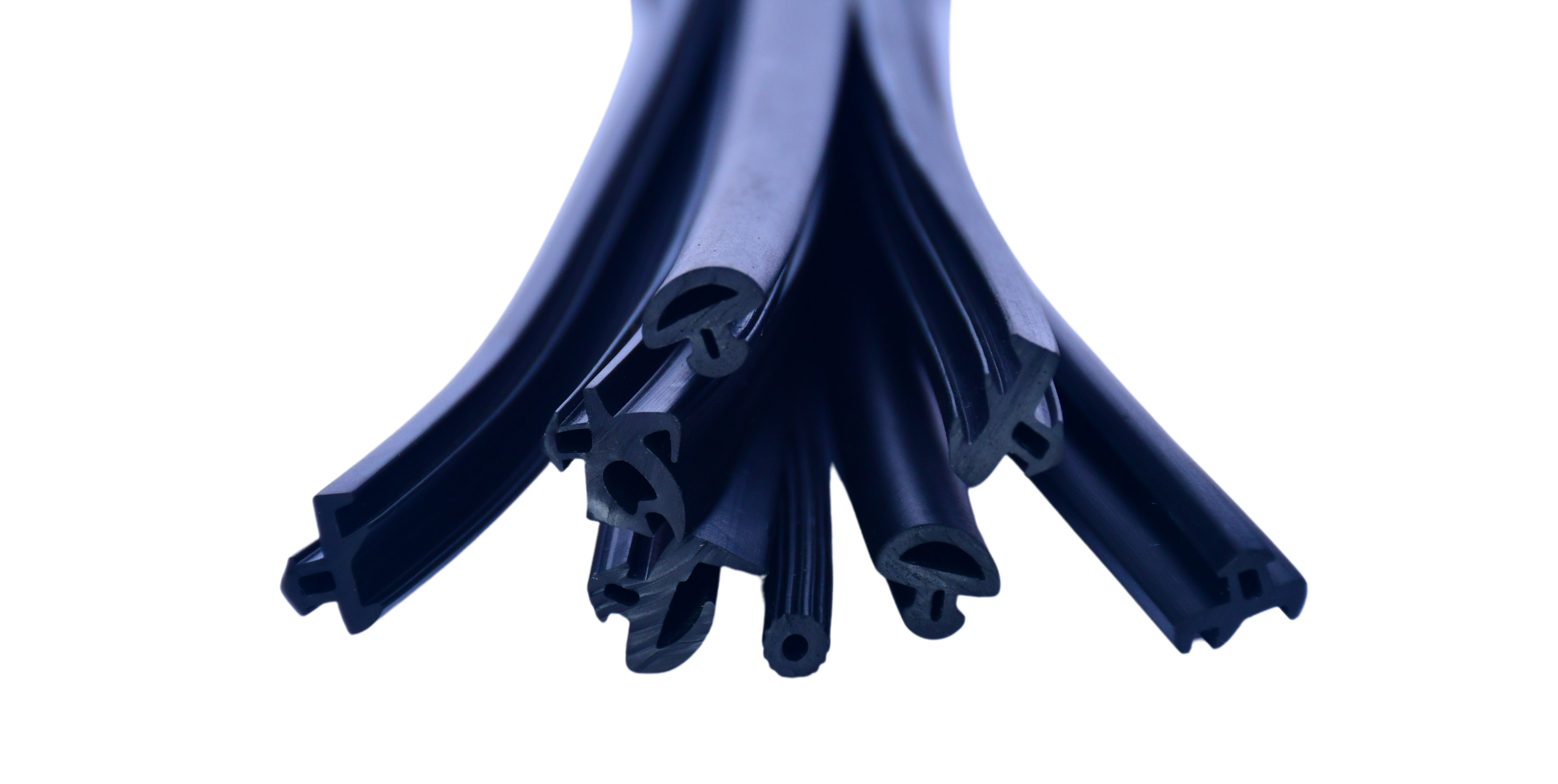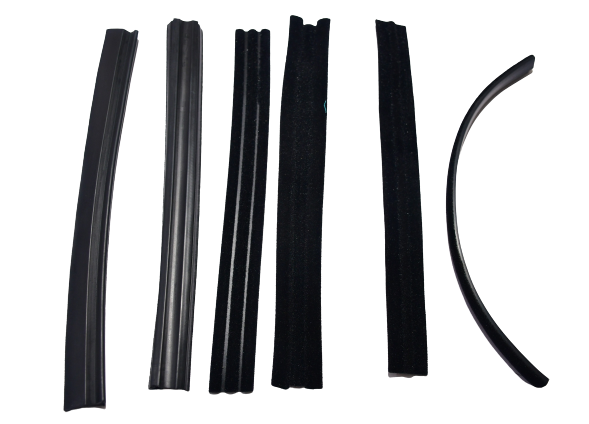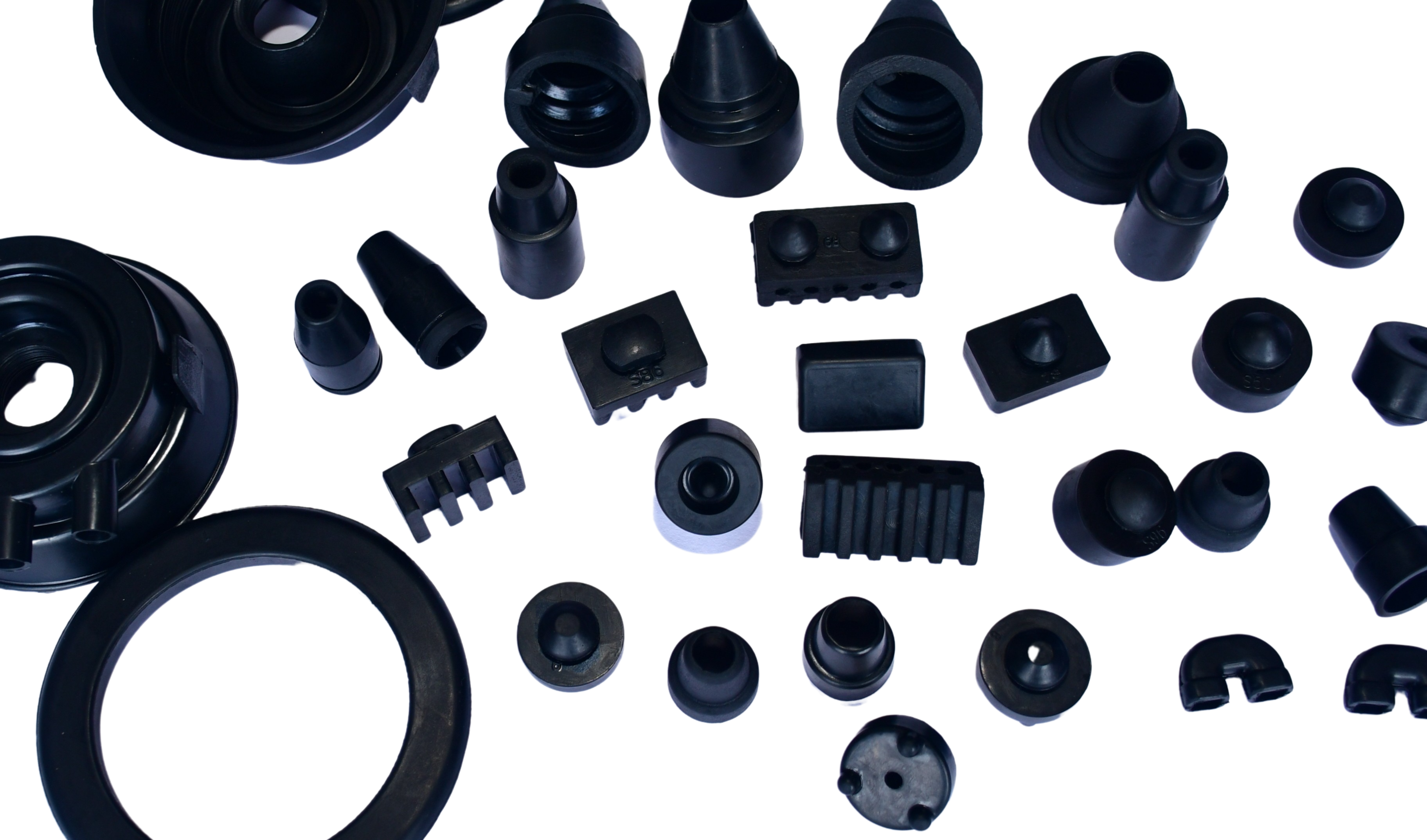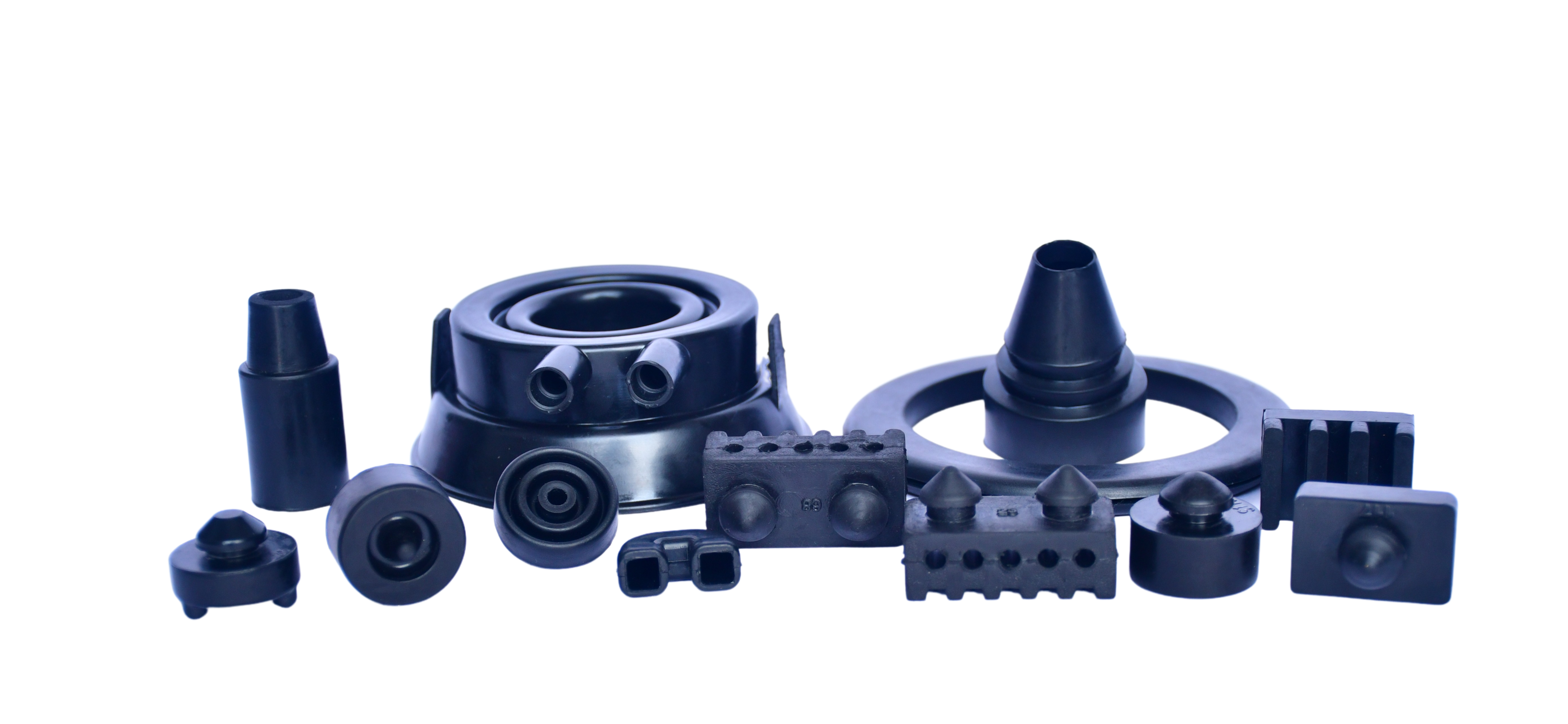Co-Extrusion Profile
We can run multiple materials in single or multi-durometers, enabling us to engineer and design the best parts for your application. Trust our expertise for tailored, high-quality solutions.

A co-extrusion EPDM profile is a highly versatile rubber profile crafted from EPDM material using the co-extrusion process, which involves extruding multiple materials simultaneously to form a single profile with distinct layers. These profiles find extensive applications in automotive, construction, sealing, and industrial sectors, offering a multitude of benefits such as enhanced design flexibility, increased strength and durability, excellent weather resistance, and an appealing aesthetic finish. Notably, co-extrusion EPDM profiles exhibit exceptional properties, including remarkable resilience, UV resistance, chemical resistance, and thermal stability, making them exceptionally well-suited for various demanding environments and applications.
Co-extrusion is a process that originated from industries seeking solutions beyond what a single material could provide, necessitating products with two different types of compounds to meet specific application requirements. The co-extrusion process requires separate extruders for each distinct material, and it offers two variations depending on the point at which the different compounds are brought together. Subsequently, both compounds take the desired shape in the die and proceed further for vulcanization. The flow and vulcanization temperature can be meticulously controlled through a PLC Control System. The design and construction of co-extrusion dies are intricate processes, but we have an in-house facility well-equipped to handle these complexities. This enables us to independently control the dimensions and flow rate of individual compounds, even when they exhibit substantially differing viscosities and process temperatures. However, it is essential to note that the capital and maintenance costs of multi-manifold co-extrusion dies can be relatively high.

These co-extruded EPDM profiles are impeccably suited for both automotive and industrial applications, catering to requirements with or without metal inserts. The profiles encompass rigid and flexible metal inserts embedded in dense compounds, providing hardness levels ranging from 60 to 90 degrees shore A, making them ideal for ensuring a secure grip on body panels. Moreover, they feature a tube of cellular compound with a density ranging from 0.45 to 0.75, expertly serving sealing purposes with utmost efficiency and effectiveness.

Interested with this service.
Single Extrusion Profile
Because we can run multiple materials in single or multi-durometers, we can engineer and design the best part for your application.
Single Extrusion is a highly efficient and widely employed process in the rubber profile manufacturing at Standard Rubber Products. It involves the extrusion of a single compound, which could be dense or sponge (foam), to form versatile rubber profiles and parts. As a leading expert in the field, we have perfected the art of single extrusion to meet the diverse needs of our customers across various industries.
Our skilled engineers and innovative research and development team work tirelessly to design and create rubber profiles that precisely match the specific fitment and functional requirements of our clients. With an unwavering focus on technology, we conduct thorough analyses for each single extrusion application, ensuring our customers receive the utmost value in terms of tooling design, manufacturing precision, and material selection. Standard Rubber Products takes immense pride in offering a wide range of material options for single extrusion profiles, catering to various project application needs. Our extensive flexibility in selecting the appropriate compounds ensures that we can fulfill even the most unique and challenging requirements.

During the single extrusion process, a single screw within a cylindrical barrel continuously pushes the rubber compound through a constant profile die, resulting in efficient and consistent production. The production rate, meticulously controlled by the machine's screw speed, guarantees high-quality rubber profiles with superior dimensional accuracy and remarkable performance characteristics.

With decades of experience and expertise in single extrusion technology, Standard Rubber Products delivers cutting-edge solutions to our clients across industries such as automotive, construction, sealing, and industrial sectors. Our commitment to excellence and precision makes us a trusted partner for all your rubber profile needs. Whether it's simple or complex profiles, our state-of-the-art single extrusion process ensures exceptional performance and durability, fulfilling the highest industry standards.

Interested with this service.
Flocking Profile
Flocking of rubber profiles for the automotive industry
At Standard Rubber Products, we manufacture flocked products that serve as sealing components with excellent anti-friction properties, enabling smooth movement of glass in windows. Our in-house testing ensures that key quality measures like abrasion resistance meet the highest standards. The online flocking process is crucial for achieving high abrasion resistance levels. To ensure optimal results, we use only the best-grade materials worldwide for the compounds, flocking material, and adhesive.

Flocking involves coating surfaces with short textile fibers of 0.5 to 0.75 mm in length using a suitable adhesive. For rubber profiles, we primarily employ electrostatic flocking, allowing us to create both flocked and unflocked areas by controlling the adhesive application. These profiles, available in a range of 60 to 90 Shore A, are particularly suitable for automobile and bus body building products. The nylon fibers used have a length of 0.50 mm to 0.75 mm and a detax of 3.3. In cars, flocked profiles are extensively used for doors, sunroofs, and windows, serving the dual function of sealing with the body and facilitating smooth opening and closing functions with minimal force. To illustrate the technical advantages, consider a car side window where the movement of a glass pane over a rubber profile requires

significant force due to the high coefficient of friction (more than 1) between glass and rubber. Flocking the rubber can reduce the coefficient of friction to 0.25-0.3, significantly easing the sliding motion.
For the most rational and efficient flocking process, we use continuous flocking of the vulcanized profile. After extrusion, the profile is vulcanized in a UHF channel and hot air channel. Once cooled to approximately 110°C and roughened, the adhesive is applied to the surface. The flocking process follows, and then the adhesive is cured at approximately 170°C for 2-3 minutes. This meticulous process ensures the durability and superior performance of our flocked products, meeting the highest industry standards.
Interested with this service.
Moulded Rubber Parts
Products offers custom molding services for both direct manufactured parts and distributed parts.

Standard Rubber Products is a renowned manufacturer of an extensive range of high-quality synthetic and natural rubber moulded products. Our expertise spans across various applications, including pipe seals, rubber to metal bonded parts, dust covers, gaskets, valve seats, vacuum seat pads, and more. These polymer-based rubber parts are known for their exceptional durability and reliability. To ensure top-notch products, we utilize high-grade raw materials and cutting-edge technology in our manufacturing process. Our in-house rubber moulding process is facilitated by state-of-the-art compression presses with a capacity of 150 MT. This process is especially advantageous for large-volume productions and/or large-dimensioned parts, offering unmatched value.
Our product range includes corner and straight moulded components suitable for automobile, bus body building, and other applications. These components are manufactured using transfer moulding and compression moulding processes. We offer moulded products in various categories, including Co-extrusion, Solid, and Sponge, to meet a wide array of requirements.
Our EPDM rubber profiles boast high thermal and insulation characteristics, along with superb weather resistance. The use of premium raw materials ensures that these profiles are exceedingly durable and reliable.
Transfer moulding is one of the processes used to manufacture our rubber moulded products. It involves using

a plunger to force the compound into the mould cavity, effectively filling it through a system of runners and channels. The closed mould is heated to cure the compound, following which the mould is opened, and the moulded parts are carefully removed.
At Standard Rubber Products, we are committed to delivering top-of-the-line rubber moulded products that exceed expectations and perform optimally in various applications. Our meticulous approach to quality and precision guarantees customer satisfaction and reliable performance in every product we manufacture.
